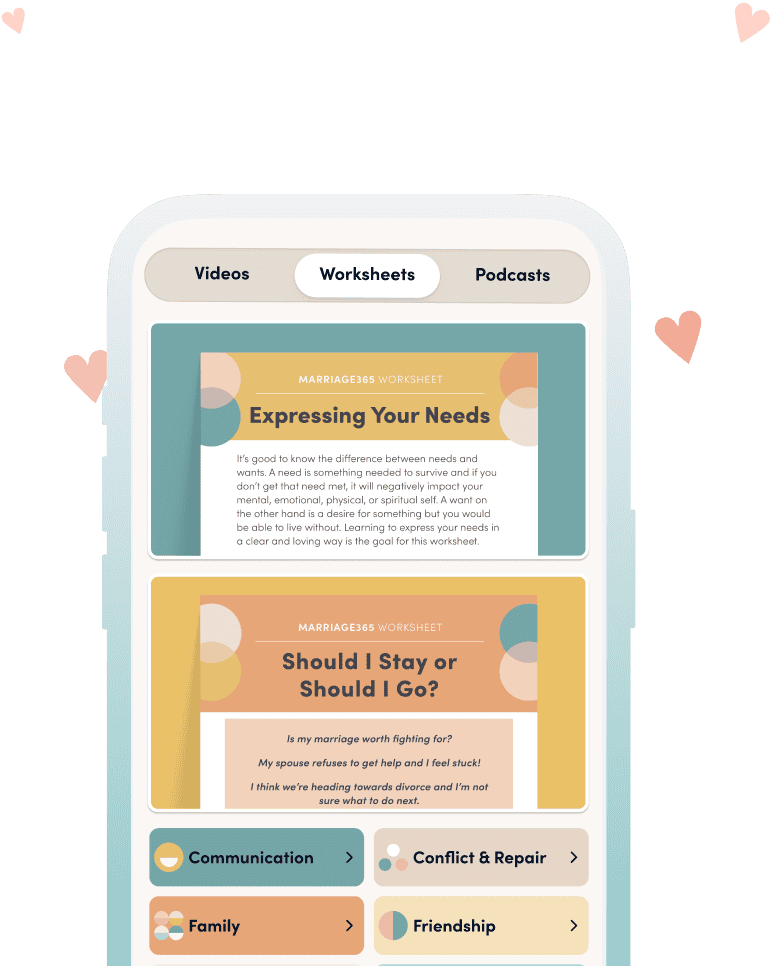ABUSE. A topic so painful to lean into that most people end up avoiding it altogether.
Abuse comes in several different forms and all of them are damaging and have the potential to produce short and/or long-term effects. It has such shock value that when it is brought up in conversation, most people instantly enter denial. No one wants to believe another human being is capable of inflicting such pain and horror on another person so they begin to rationalize it, which is damaging as well. Rationalizing can happen for both victims and abusers, which is how the cycle continues. There are many forms of abuse and while we encourage you to learn about them all, here are 4 important terms in this arena that we need to identify and understand together before we can continue:
Verbal / Emotional Abuse:
- The abuser insults or attempts to humiliate you.
- The abuser accuses you of being overly sensitive.
- The abuser forces their way into your personal space or block you from moving away.
- The abuser hits the wall, pounds their fists, or throws things.
Physical Abuse:
- The abuser physically restrains you.
- The abuser withholds food or necessary medication from you.
- The abuser hits, cuts, burns, chokes, or bites you.
- The abuser drugs you.
Sexual Abuse:
- The abuser preforms a sexual act on you without your consent.
- The abuser drugs you in order to perform a sexual act on you without your consent.
- The abuser forces you to perform a sexual act on them without your consent.
- The abuser forces you to perform a sexual act on someone else without your consent.
**In the case of minors, it is also considered sexual abuse to expose yourself to a minor, to masturbate in front of a minor, to show a minor pornography, to lead a minor into any other manner of sexual misconduct that physically, emotionally, or mentally, harms them.
Domestic Abuse:
- The abuser destroys your personal belongings or home.
- The abuser controls your finances or refuses to provide money for necessities.
- The abuser prevents you from spending time with your family or friends.
- The abuser insults, shames, or demeans you in front of others.
It goes like this…
Most abusers aren’t aware that they are crossing boundaries and if they are, they have a story they tell themselves of why it’s a justified action. Many victims aren’t ready or are too embarrassed to admit that they are being abused that they, too, have a story they tell themselves of why it’s justified or not as bad as they think and feel. Many of them may also fear that they won’t be believed or that they’ll have to work hard to convince someone else of what’s happening, so they stay silent. This is how the horrific and age-old cycle of abuse works. A cycle that we need to all work together to expose and eradicate.
You might be a current or past victim of abuse if…
-
certain tones of voice, smells, behaviors, places, thoughts, or feelings trigger you to extreme anger, anxiety attacks, rapid heartbeat, shaking, vomiting, dizziness or make you overwhelmingly feel the need to flee or escape your environment
-
the fear of letting down, disappointing, or failing your partner causes you extreme stress or panic
-
if you constantly feel like you “can’t win” or if a disagreement always gets turned back on you or is made to be your fault (gaslighting)
-
if you have ever thought to yourself, “this feels like abuse” or have asked the question “how do you know if _____ behavior is abusive?”
-
if you constantly cancel plans to avoid having the people you love getting involved or making excuses
-
if you have cuts or bruises on your body
-
if your spouse has ever forced you to have sex, even after explicitly saying NO (yes, marital/partner sexual abuse is possible and it is not justified ever)
-
someone in your life uses scary or threatening words or behavior to manipulate you into certain behavior
-
you begin to live in fear that someone is following or watching you
-
you have dreams/nightmares about an action done toward you that you do or do NOT remember
-
you feel constant anxiety or tension in your body that you cannot otherwise explain
Someone you love might be a victim of abuse if…
-
you notice that certain tones of voice, smells, behaviors, places, thoughts, or feelings trigger them to extreme anger, anxiety attacks, shaking, vomiting, dizziness, or panic
-
if they frequently cancel plans or make up excuses why you cannot see them face to face
-
if they frequently make excuses for their spouse’s harmful behavior (A common example: “Oh, he didn’t mean to call me those names, he’s just having a bad day. Don’t we all?”)
-
if they wear unusual baggy or weather-appropriate clothing (Example: wearing long sleeves on a 98-degree day and acting strange or unusual about why)
-
if they flinch when you catch them off guard, try to touch their arm in conversation, or hug them
-
if they have bruises or wounds that they either hesitate to or cannot explain
-
if they get in a fetal position when talking about a past experience with a family member, ex-lover, etc.
-
if they numb out to large amounts of alcohol, drugs or anything other substance on a regular basis
You might be an abuser if…
-
your spouse/partner acts afraid of you or has made comments that they have to walk on eggshells around you
-
other people look at you in a concerned nature when you interact with your partner
-
you have extreme explosive outbursts that result in you physically destroying objects around you or lashing out at your children or partner in any way
-
you have an addiction of any kind and find that when you are in withdrawal you are angry, mean, or violent
-
had a parent or guardian that abused you as a child and you often see them in yourself
-
during disagreements with your spouse or children, you feel like you cannot cage the beast inside you; you may also feel an “out of body” type of experience where you know that the way you are treating them is not okay, but you can’t seem to stop or control it
Whether you are a past/current victim of abuse, know someone who you suspect is being abused, or are suddenly wondering if you are an abuser yourself, there IS HOPE and there are RESOURCES for you. We always say “you cannot heal if you don’t reveal” and those words ring deeply true, here, as well.
What you allow is what will continue and that means that if you do not take the first step to break the cycle of abuse in your situation, no one will. No matter where you fall on this spectrum, say no to shame, regret, anger, and fear and, instead, give yourself permission to take that first step in creating the change that you or someone else needs to be healthy, happy, and safe. Be the voice that advocates for yourself. Be the voice that advocates for that child that you suddenly can’t stop thinking about. Speak up!
**Disclaimer: Abuse is not a topic to mess around with and should not be handled on your own. While you are capable and strong, it is wise to have trained professionals on your team to help and guide you forward. If you cannot locate or are unable to contact a local counselor, please call your local church, even if you are not religious. They will be able to provide resources to you, as well.
RESOURCES:
National Domestic Violence Hotline
How to Recognize Verbal AbuseChildhelp National Child Abuse Hotline
Written by Anna Collins
Anna Collins lives in sunny Southern California with her husband and two children. She is passionate about her marriage, staying at home with her kids, writing, coffee, good conversation, and game night. Her life dream is to someday write a book and see it published.








